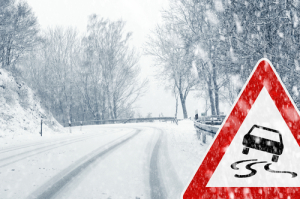October 29, 2014
 It’s that time of year again: snow on the mountains and trucks in ditches. More than 1/3 of Alaska’s car accidents occur November – January. We Alaskans love our winters, but we don’t love sliding off the road, or worse. With adverse driving conditions and the increased alcohol consumption that occurs over the holidays, it’s particularly important to think of what you can do to prevent vehicular accidents and minimize the consequences, if you are unfortunate enough to be in one.
It’s that time of year again: snow on the mountains and trucks in ditches. More than 1/3 of Alaska’s car accidents occur November – January. We Alaskans love our winters, but we don’t love sliding off the road, or worse. With adverse driving conditions and the increased alcohol consumption that occurs over the holidays, it’s particularly important to think of what you can do to prevent vehicular accidents and minimize the consequences, if you are unfortunate enough to be in one.
- Increase Visibility—Yours and Thiers.
- Make sure all of your vehicle’s lights work.
- Put no-freeze windshield fluid in your washer reservoir.
- Check your anti-freeze.
- Allow time for your windows to fully defrost before you hit the road.
- Carry reflective markers for your car, in the case of a breakdown or accident.
- Update Your Emergency Kit. If you don’t have an emergency kit, put one together. If you do, now is a great time to look it over and update it. It should include items like:
- A warm blanket.
- Flashlights or headlamps.
- Material for traction (sand bags, kitty litter, floor mats).
- A shovel.
- A snowbrush and ice scraper.
- Flares or reflective markers.
- Extra food, water and medication.
Of course, in this day and age, having your cell phone with you in the vehicle doesn’t hurt either. Just don’t use it while you are driving!
- Polish Your Driving Skills. If you’ve been driving for any period of time, you probably feel like it is second nature. If you’re a new driver, you may actually have a false sense of confidence. Regardless, any driver benefits from brushing up on their cold weather driving skills. It’s important to know the limits of your vehicle and how it responds to ice, snow, rough roads, etc. Visit an empty parking lot and practice maneuvers like steering into a skid and slamming on your brakes. Of course, you don’t need to do this at high speeds to know what will happen, and you shouldn’t!
- Make Responsible Decisions. When you read this, the first thing that comes to mind likely has to do with drinking and driving. It is extremely important not to drink and drive, but there are also other responsible choices to make along with that:
- Slow down. Allow extra time to get to and from your destination and drive a speed appropriate to road conditions. Remember, speed limits are set for optimal driving conditions.
- Buckle up. This should be a given any time you get in a car.
- Don’t drive tired. Response time slows with fatigue and of course, falling asleep at the wheel can be disastrous. With decreased visibility, you already have additional challenges to contend with—sleepiness will only stack the odds against you.
Hopefully, these tips will help to keep you safe on the roads this winter. Remember, if you do find yourself in an accident, we are here to help.
